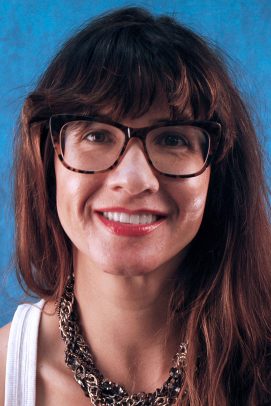UIC awarded $4.7 million NSF grant to enhance K-8 math instruction, professional development in south Cook County
Researchers at the University of Illinois at Chicago will lead a five-year, $4.7 million project funded by the National Science Foundation to develop and implement a professional development program for K-8 math educators that spans across three levels — teacher, school and district.
The Elementary Mathematics Leadership model for K-8 mathematics will use a design-based implementation research process involving collaboration between researchers, professional developers, and district and school personnel to co-develop the professional development from district- through teacher-levels.
Alison Castro Superfine, the project’s principal investigator and UIC professor of mathematics education and learning sciences, said the project is specifically designed to improve teachers’, teacher leaders’ and administrators’ understandings of effective math teaching and learning in ways that are aligned with the Common Core State Standards for Mathematics.
“Limited resources and school- and district-level infrastructures are often not optimally designed to support instructional improvement,” said Superfine, who also is affiliated with the Learning Sciences Research Institute at UIC. “By studying and implementing the model at three levels, our aim is to address these challenges simultaneously.”
The UIC research team, which also includes College of Education faculty Benjamin Superfine, professor and chair of educational policy studies; Shelby Cosner, professor of educational organization and leadership and director of UIC’s Center for Urban Education Leadership; and Yue Yin, associate professor of educational psychology, will work in partnership with four K-8 school districts in south Cook County. The districts, schools and teachers will serve as collaborators and co-designers of the intervention so that it is adaptive to an individual district’s needs.
“The nature of what we are studying and implementing is inherently complex and requires knowledge, theories and methodologies from multiple disciplines,” Superfine said. “Districts and schools have different instructional and organizational challenges, so adaptive integration of any intervention is critically important as interventions such as ours go to scale.”
The Elementary Mathematics Leadership project will advance previous research conducted in two projects from UIC: Suburban Cook County Mathematics Initiative and Common Core for All in Urban Settings Initiative.
Ultimately, the researchers hope to get everyone — teachers, schools and districts — on the “same page.”
“Past efforts to improve K-8 math instruction have typically failed to travel across or between these different levels, thus inhibiting the potential for instructional improvement to take root,” Superfine said.

